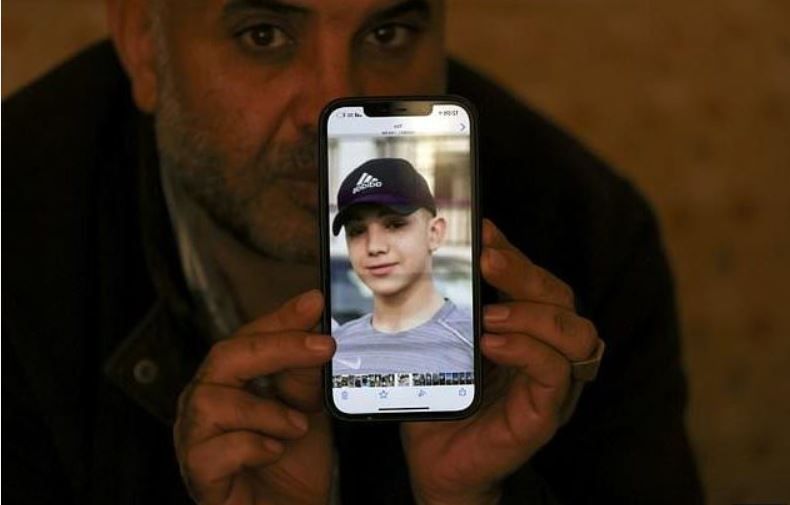
Ramallah/PNN/
The United Nations and parents of imprisoned Palestinian teenager Amal Nakhleh have voiced concerns as he is chronically ill and one of the few minors held without charge by Israel.
"Since his arrest last year I have only seen him twice, including last week when he told me he wanted to go on hunger strike," journalist Moammar Nakhleh said of his 17-year-old son on Sunday.
"This scares me because he is already very weak," from myasthenia, a rare neuromuscular disease, and underwent surgery in 2020 to have a tumor removed from his rib cage, Nakhleh said at the family home in al-Jalazun refugee camp in the occupied West Bank city of Ramallah.
Amal's predicament dates back to November 2020 when he was out with friends after recovering from his cancer surgery and was detained by Israeli forces in the occupied West Bank.
Israeli authorities accuse Amal of throwing stones at troops and have held him for a year in administrative detention.
Accused of throwing stones at soldiers, Amal was held for 40 days but then set free by an Israeli judge.
But in January last year, he was re-arrested and placed in administrative detention, which has since been twice renewed.
Moammar Nakhleh fears that Amal's detention will be renewed again on Monday.
"I am scared that if his detention is renewed, I will not see him for a long time," he said at the family home in Al-Jalazun refugee camp.
The United Nations Relief and Works Agency (UNRWA) for Palestinian refugees has also taken up Amal's case with the Israeli authorities.
"We are demanding his immediate release from administrative detention for two reasons: his medical condition, which is incredibly serious... and he is a minor," UNRWA's West Bank chief, Gwyn Lewis, said, adding, "We have written several times and followed up but there has never been any information on why he was arrested."
There are reportedly more than 7,000 Palestinians held at Israeli jails. Hundreds of the inmates have been apparently incarcerated under the practice of the so-called administrative detention.
Palestinians and human rights groups say "administrative detention" violates the right to due process since the evidence is withheld from prisoners while they are held for lengthy periods without being charged, tried, or convicted.
The detention takes place on orders from a military commander and on the basis of what the Israeli regime describes as ‘secret’ evidence.
Rights groups describe Israel’s use of administrative detention as a “bankrupt tactic” and have long called on the regime to bring the practice to an end.
According to Palestinian authorities, Israeli forces have arrested about 1,200 Palestinian minors across the occupied West Bank, including the Old City of al-Quds, and the besieged Gaza Strip so far this year.
The Palestinian Prisoners' Center for Studies (PCBS) said in a report in September last year that Israeli authorities had clearly escalated targeting Palestinian children.
The aim is to deter Palestinian minors from resisting the Israeli occupation, ruin their educational opportunities, destroy their future and create a weak and cowardly generation, the PCBs said.
Israeli prison authorities keep Palestinian inmates under deplorable conditions lacking proper hygiene standards. Palestinian prisoners have also been subjected to systematic torture, harassment, and repression.
The Israeli parliament has already approved a law that allows prison officials to force-feed hunger strikers. The law has sparked criticism from rights groups who regard it as a disrespect of the detainees' rights.
Human rights organizations have repeatedly slammed Tel Aviv for its shoot-to-kill policy as a large number of Palestinians killed in such incidents did not pose any serious threat to Israelis.
